Nov 29, 2022

Tibouchina: a September bloomer now blooms in November
On the day after Thanksgiving I typed “The End” on the first draft of a novel I’ve been working on over fifteen years; the oldest file is dated in April, 2007. Back then the working title was The Yearbook. It was the story of a middle-aged woman who tries to imagine her mother’s early life, while her mother, who died young, indignantly corrects her from some version of purgatory. That misbegotten idea aborted early. Next it was going to be the story of the middle-aged woman’s life. But she resembled me, and I didn’t like her. Finally, after several years, I dropped the middle-aged woman, and wrote the story of her parents, who married in 1946 when her mother was 20 and her father 29. The title became “A Long Marriage,” and it now follows their lives, and that of their children, until 1981.
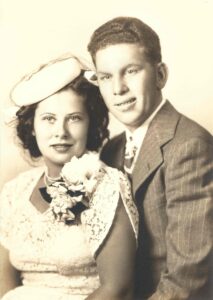
image: reddit.com
As I neared the end of the book I was exhilarated, and reported to friends and family, “Only four chapters to go.” Then on Thanksgiving, with only one scene left to write, I found myself unaccountably sad. At first I thought it was post-turkey blues, seasoned with memories of my late siblings. But that didn’t seem to fit my feelings. I was missing not my siblings, but my characters. I had spent fifteen years with them. Two were dead, and the rest really nothing but words on the page.

The next morning I worked a couple of hours, and typed those magical words, “The End.” I wandered around the house and yard, dazed and proud.

Tibouchina: a September bloomer now blooms in November
The glow lasted two more days. I went through the document, moving all the notes and research to separate files, formatting the remaining text, which was over 675 pages, 1.5 spaced, 235,000 words. I splurged and took it to Renaissance Printing for copying. I put it in an old 3-ring notebook from the days when I taught family law. A bookmark on the spine says “I keep my eyes on the moon, and my feet muddy.” I flipped through the pages, awed by it, awed by myself. All those words!
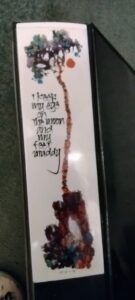
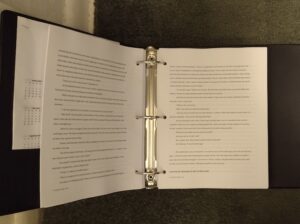
I know how much work lies ahead. (My fourth novel went through 17 drafts; at 75 I don’t think I have time for that many.) I need to get it down to about 100,000 words; nobody will publish 675 pages by an unknown writer. First I’ll figure out the arcs of the two main characters, and of the marriage.* I’ll analyze each chapter to see what it shows, asking myself what I need more or less of. If it’s too painful to ‘kill my darlings,’** I can turn them into short stories posted on my blog, whetting my vast audience’s desire for the book. (Like my vast audience, this intention is mere fantasy.)
But late last night, quailing at the huge job ahead, I remembered that the chances of my novel being accepted by a publisher are minuscule. My first three novels are set in this century and concern current issues (environmental degradation, child welfare, homelessness). I’ve only managed to get one of them published. This one is a family saga, but it begins right after World War II and goes to 1981. The family is touched by Vietnam, the women’s movement, and racial issues. The story lacks the romance of distant times or places, and I suspect that people under sixty won’t find those years very interesting, or more to the point, that agents and editors don’t believe they will.
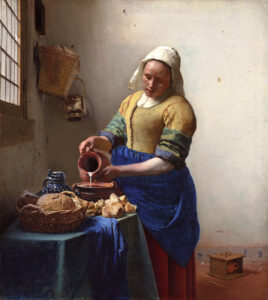
image: incrediblepaintings.blogspot.com
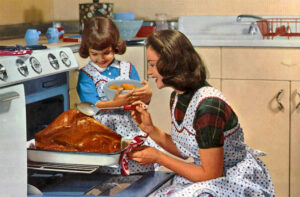
image: woodrice.com
Even as I wrote this my doubts began to dissolve. I guess I needed to get it off my chest. I certainly can’t give up now after all these years, so I’ll plunge back in. Based on past experience, it will take me a few years to have a draft worth sharing. If the audience for A Long Marriage is people my age, I guess I’d better get to work.

image: bostoncalendar.com
*I think you’re supposed to do this in an outline before you begin, but my outline consisted of a sentence or two for each of the five chunks of the book. I use the see-what’s-around-the-next-bend approach to writing, and only plan a few chapters ahead, as the ideas flow. **Stephen King famously said it, but apparently Faulkner said it first.
Jan 4, 2022
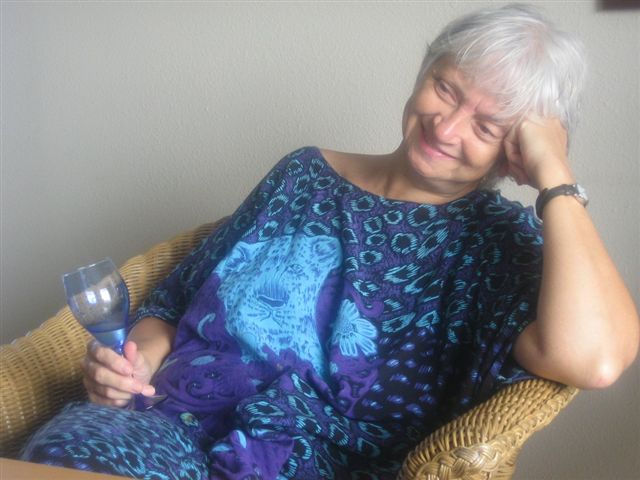
I love meeting with book clubs to discuss my first novel, Dreaming the Marsh. What author of slight renown wouldn’t love to talk with a group of people who (mostly) have read her book, people who want to discuss it and learn about the author?

Middle-aged women gathered on a porch at night posing for camera
I also love performing at nursing homes and retirement communities with my singing partner John. It was at one of these retirement communities in a nearby town that I met Phillip Johnson, the Coordinator of Entertainment and Social Activities at Halcyon Gardens.* When John told him about my novel, he eagerly asked whether I might be willing to come talk with their book club. I told him that he could check out a book club kit with ten copies of my book from the library. With a little back and forth, we set the date.
Phillip called a week before the meeting and after a few rounds of phone tag we connected. He hemmed and hawed a bit, then admitted that some of the book club members were uncomfortable with my book and didn’t want to talk with me about it. I rapidly reviewed the book in my mind. Was it the theme that opposed environmental destruction? Was it the mysterious magical elements?
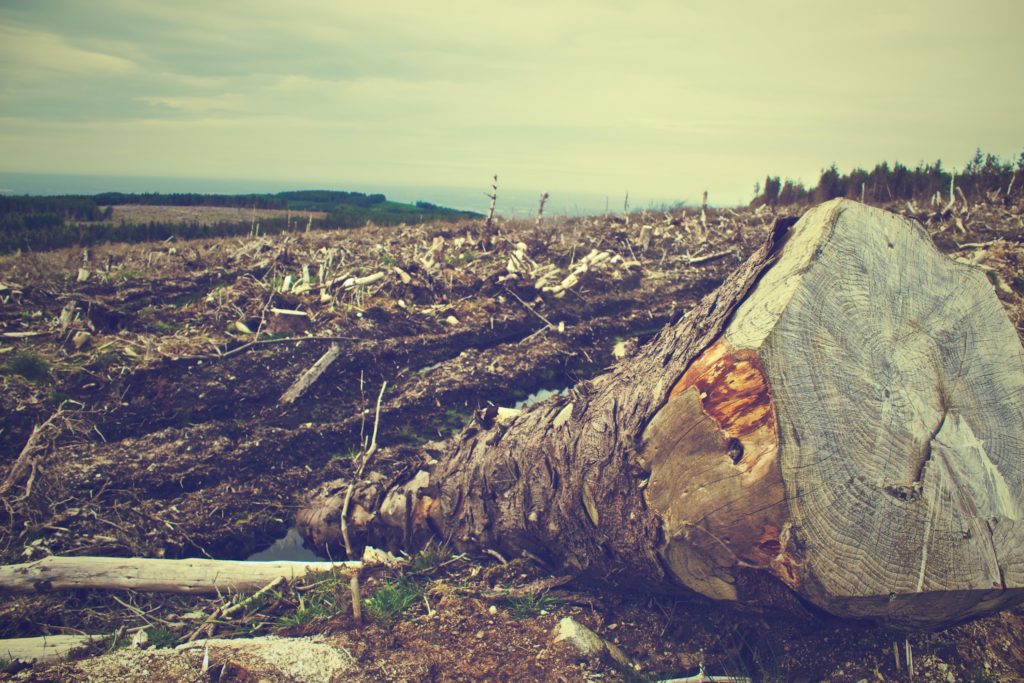
bleak landscape of scattered logs with one downed tree looming in foreground. image by picography at pexels.com
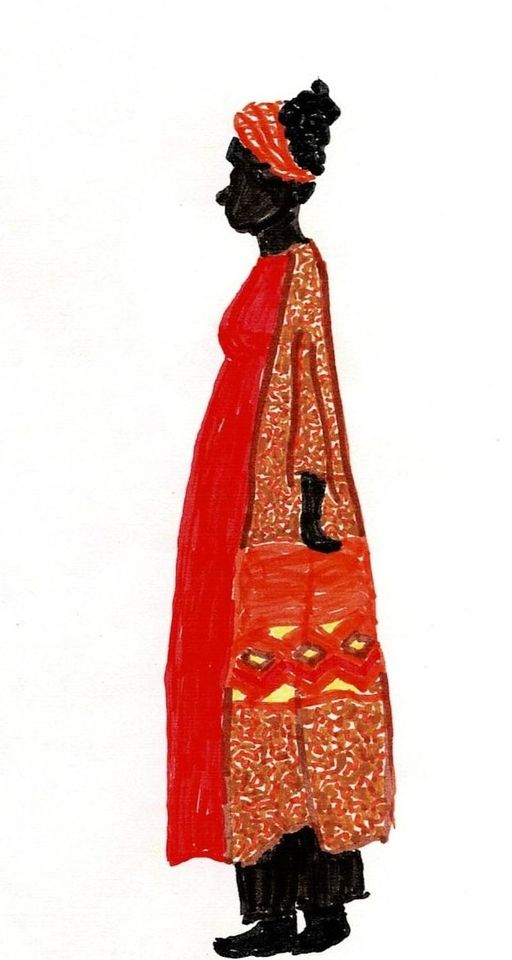
A prophet: my drawing of tall Black woman in red and orange caftan and headwrap over loose black pants
No. It was the sex. To Phillip’s relief, I laughed. I was astonished. I silently reviewed the few bits of sex in this environmental fable. I think no one would call the passages explicit or pornographic, but you can be the judge:
Randall, driving a business acquaintance back to her hotel from a dinner gathering, realizes she assumes they will have sex. “He wasn’t one for cruising bars or coming on to a woman at a party just because she was unattached. But as long as his equipment was in good working order there was no reason to pass up an invitation.” He was uncomfortable at her take-charge, businesslike approach to seduction, and “felt himself shrinking” as she sat in an armchair and watched him remove his clothes. “He was sure propinquity would do the trick; it did, and quickly. Her skin was warm and soft, and she smelled delicious. She pulled down her gown so he could reach her breasts…She was in rather a hurry, and he was a little disconcerted by her instructions on position and pace, but together they got the job done.”

woman (torso only) slips red lace gown off shoulder
Tyler falls in love with Carol. “He’d never understood other people’s obsession with sex until he began sleeping with Carol…The first time was a couple of weeks after their picnic. He plunged into her flesh, soft and warm, almost steamy, and it seemed infinite. She moved and turned under his hands. Every place she touched became in that moment the right place.” In one scene they go for a hike in the woods, and after skinny-dipping in a muddy creek, make love on the forest floor. This is the full description of the sex act: “Her skin was still cool, but inside she was warm.”

Cross Creek, Hawthorne Florida. Lush trees reflected in creek
Recalling his only previous intimate relationship he remembers that “he found Wanda’s body a pleasure and a comfort, but from the beginning their love-making was as simple and plain as bread.”
For her part, Carol recalls the excellent sex she used to have with Randall. “She could still feel every inch of him, his surprising bulk when she stretched her arms around him, crisp curly hair between her fingers, the soft skin of his side, his big tight balls banging against her.”
Jade and Jasmine are twin sisters who plan to build a condominium development in the environmentally sensitive Marsh. When they were young they dropped out of college and traveled around together for a couple of years, ending up at a communal marijuana farm. “Within a week the twins felt completely at home, part of the family. Together and separately they’d slept with every member of the commune, not excluding Lillian, the woman with the baby, whose milk dappled her nipples like dew as they caressed her breasts.”

2 white men sleeping in crumpled sheets with white woman under window opened to view of tree and clouds. Image by cottonbro at pexels.com
That’s all. Six vivid but hardly explicit sex scenes in 247 pages. Halcyon has an excellent reputation, and I told Phillip that I had thought I might eventually move there, but now I wasn’t sure I would fit in and find friends. He hastened to reassure me that it was only a few members of the book group who had objected. Of course. There are over 900 residents at Halcyon; surely they come in many stripes.

image by vlada karpovich at pexels.com. bald white man blue sweater and snowy haired white woman gray sweater, hugging nose to nose
I began writing fiction over thirty years ago, and I have come to understand what I love about it. I love making stuff up. I love messing around with language, making sentences that sing. Maybe most of all, I love my characters, the creeps as well as the nice guys. By the time I have finished a novel, I understand everything about them, and to know all is to forgive all. I don’t write about sadists or other types who horrify me; I can’t spend years exploring the humanity of brutes. But I do make up people who are very different from me in their fears and insecurities, obsessions and joys.
I keep thinking about the small group of women who were offended by the sex in my book, and I start creating a character. How did she feel reading it? What memories did it stir? I want to know more about her, and I expect she will show up one of these days as a minor character in the novel I’m currently working on.
Explicit descriptions of sexual acts sound mechanistic, cliched, or simply ludicrous. But sex is such a fundamental part of being human. I can’t imagine creating a world full of people in which it doesn’t play a part.
*name and identifying information changed to protect the innocent and my new-found friend “Phillip.”
Sep 12, 2021
I have just submitted my novel, The Year of the Child, the story of a teenage mother looking for a home, to four independent traditional publishers.* In the book the search takes a year. In the story of my writing life the search has so far taken seventeen years, filled with hope rising, hope dashed, and a few thoughts of ‘Give up already,’ as well as activism, love, children and other catastrophes.
I looked for an agent for a year and a half, and miraculously found a fairly prominent one who compared me to Barbara Kingsolver and said my book would probably sell quickly. My notes of our initial conversation are filled with happy exclamation points.
😄 !!! 😄
The agent submitted to seven big corporate houses – publishers you’ve heard of – with no success. After mulling it over, she suggested that if I turned it into a YA (young adult) book – a market which in 2006 was rapidly growing – we could probably place it quickly. I mulled in my turn and sent her this:
I have thought hard about your suggestion, trying it on for size and imagining the story recast. But I’ve decided it’s not what I want to do.
As we discussed, the book is about mothers. Removing the perspective of Marybeth and Vinnie gives us a different book. I love Leanne, but she is as self-centered and naive as any fifteen-year-old. I don’t want to send her into the world alone. What I value is the combination of her viewpoint with the adults’ perspectives, as well as the interplay of the stories of mothering an infant, an adolescent, and an adult child.
I’d like to go on trying to get all three women (and their various sidekicks) in print. Although I have less time than younger writers, I suspect I have more patience. I am almost through the second draft of Seeing the Edge. As soon as I am done, I am going to read The Year of the Child aloud, and will let you know what I find.
I really want to be published. But I also hope to write better and better books, and end up with a bunch I’m proud of. I like books that I can get my teeth into, that move me and make me think, increase my understanding and puzzlement. That’s what I want to write.
Though you think I understand teenagers, I’m not sure I have any more in me. Leanne was a gift. I had an image of a girl leaving a baby by a big green dumpster. And then a few days later I heard her saying the first two sentences of the book. I would give a lot to have other characters create themselves the way she did; I rarely experience writer’s magic
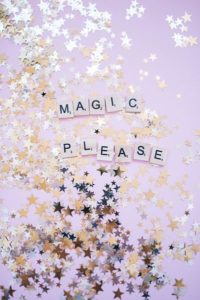
Scrabble tiles spell “magic please” with background of star stickers
Photo by Olya Kobruseva from Pexels
A couple of years went by with no success, and after fueling my determination with a quart of ice cream I called the agent and said I would try my luck with small independent publishers. These publishers usually pay small or no advances and the chances of bestsellerdom are even smaller than with the big houses, so there is little financial reward for an agent. We agreed to go our separate ways.
I met Joan Leggett of Twisted Road Publications at a panel where she and Pat Spears discussed the creation of Pat’s book, Dream Chaser. She had also published my friend Sandra Lambert’s first book, The River’s Memory. (You can find my reviews with the search icon at the top of the page)
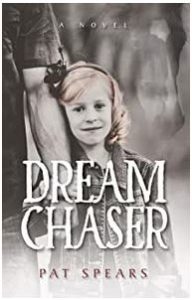
Book cover Dream Chaser: little girl holds man’s hand
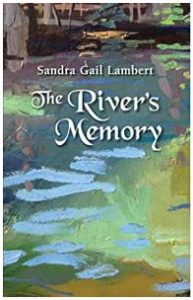
book cover The River’s Memory: painting of light-dappled narrow river filled with plants
I submitted Dreaming the Marsh to Twisted Road; Joan rejected it with a valuable two-page critique. I submitted The Year of the Child and with her guidance revised it three times, but she finally decided it wasn’t for her. Meanwhile I had revised Marsh, and she published that, then after several revisions agreed to publish Seeing the Edge.
I love working with Joan; I can’t say enough about her clear eye and sound instincts for my work. I have learned so much. But I didn’t want to give up on Child, and after reducing it from 127,000 to 99,000 words, I began my submissions elsewhere.

Woman in pink jacket, axe on shoulder, gazes up at snowy trees: no hatchet job, one word at a time
Photo by Mikhail Nilov from Pexels
It’s hard to write about the long slog toward getting published without sounding whiny. In my early years, I’m sure I whined, but I’ve long since accepted that this is how it is. I get huge happiness from my writing life: joy and pride when I’m writing well, satisfaction when I complete tangential tasks.
Seeking publication is tangential but essential. With four submissions out I’m filled with hope, Emily Dickinson’s ‘thing with feathers.’ I know perfectly well that the odds of success are miniscule and the feathers are likely to fall one by one as the rejections arrive. Meanwhile I enjoy this happy time. I indulge in wild fantasies, both serious and silly.
- Suppose two of them offer to publish it? I have already made a plan for how I will choose, and a list of the questions I’ll ask my suitors.
- What if a major independent publisher says yes, and I get more attention than I have so far? That would also promote my two other books, and the movies would come calling. Meryl Streep and Brad Pitt are perfect for the retired teacher and the homeless guy with a past in Seeing the Edge (forthcoming Fall 2022 from Twisted Road.) I don’t really know the next generation of stars, so someone else will have to cast the movies of Dreaming the Marsh and The Year of the Child.
- Would one of my nicest muumuus be appropriate for the Pulitzer ceremony?
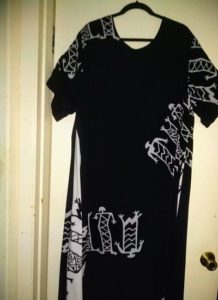
Black dress with white human figures resembling cave paintings
I have a list of about thirty publishers who are surely yearning to publish me. Each time I receive a rejection I’ll send out another submission; I want to keep that bird flying.
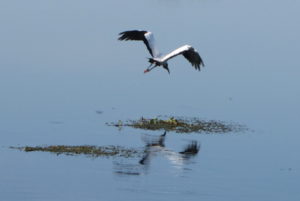
Woodstork: large white bird with black wingtips flies over marsh, only its reflection and ripples distinguish water from gray-blue sky.
Photo by Sandra Gail Lambert
* Independent – a publisher not affiliated with a large corporation or conglomerate
Traditional – publisher bears such costs as editing, cover design, production and distribution – author invests blood, sweat and tears, but no money
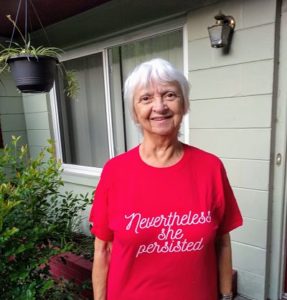
Aug 11, 2011
Amanda is a fake name. I found it on the internet – in Nigeria it means “she who must be loved” or “worthy of love” – both true. I initially chose Arinze – gift from god, or one who gives thanks to god for the divine gift of life. I dropped that when I found Cardinal Arinze, who notoriously attacked gay marriage in a commencement address at Georgetown. I considered Halla, its origins identified only as “African,” and meaning unexpected gift. Also true. But it was too close to challah and halvah. So Amanda is my choice, though it may evoke an Ivory/Merchant costume drama.
























